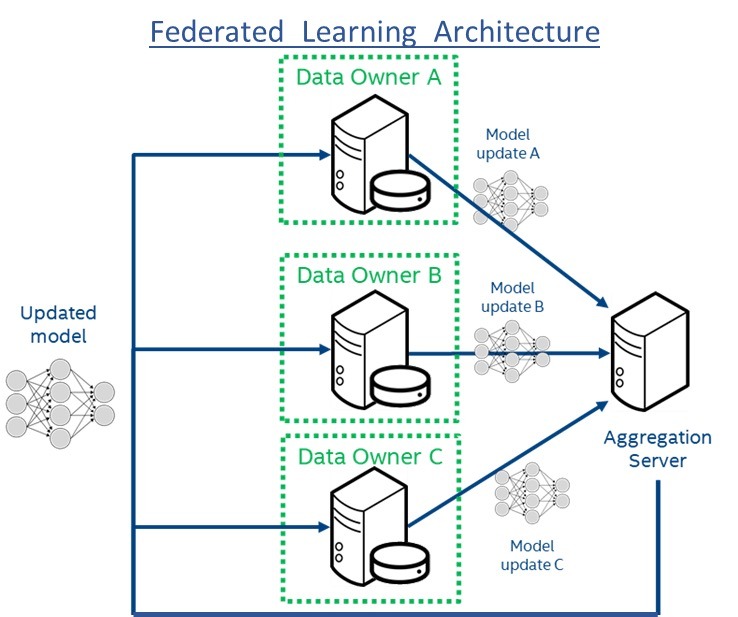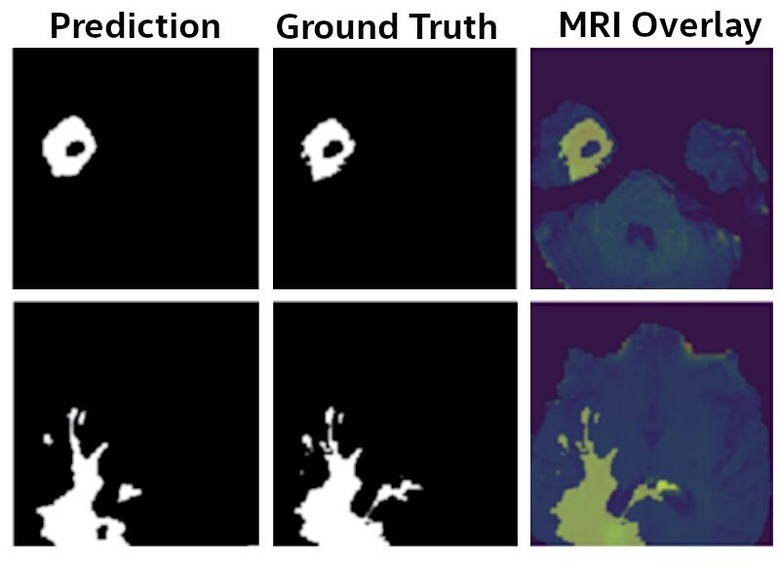This AI Is Learning To Spot Brain Tumors - Without Infringing Privacy
Intel and Penn Medicine are working on a huge, institution-spanning AI that will help identify brain tumors but without overstepping on strict medical privacy rules. The cross-location AI will use a technique known as "federated learning" as it spans 29 different healthcare and research institutions.
Training artificial intelligences with data sets of illnesses, so that they can act as a filter on large numbers of cases, has been shown effective in a number of ways. However the downside is that for the most effective performance those data sets need to be considerable. An individual healthcare institution or research lab would likely struggle to feed a developing machine learning computer with all the information it requires.
"It is widely accepted by our scientific community that machine learning training requires ample and diverse data that no single institution can hold," Dr. Spyridon Bakas at the Center for Biomedical Image Computing and Analytics (CBICA) of the University of Pennsylvania explains. While in technical terms that's no great challenge, the reality is that health privacy laws – whether they be HIPAA, GDPR, or something else – place limits on just what can be shared. That's a bottleneck for big data processing.

The answer, Intel and Penn Medicine say, is federated learning. Rather than sharing individual patient records, an encrypted machine learning model is distributed to each of the institutions taking part. That decrypts in a secure enclave on each computer, and is trained on the local data.
Only the model updates are subsequently shared with the organization responsible for aggregating the model. As well as being more private – since the patient data never leaves the separate institutions – it's also more efficient in terms of data transfer, since the retrained models are smaller than the raw patient data.

Penn Medicine and 29 healthcare and research institutions from the United States, Canada, the United Kingdom, Germany, the Netherlands, Switzerland, and India will use this federated learning system, running on Intel hardware, to collaborate on a way to identify brain tumors using AI.
"This year, the federation will begin developing algorithms that identify brain tumors from a greatly expanded version of the International Brain Tumor Segmentation (BraTS) challenge dataset," Bakas says. "This federation will allow medical researchers access to vastly greater amounts of healthcare data while protecting the security of that data."
Nearly 80,000 people will be diagnosed with a brain tumor in 2020, the American Brain Tumor Association says. Intel and Penn Medicine's model can achieve 99-percent of the accuracy as a model trained on raw MRI data, when it comes to identifying Glioma brain tumors from scans.
